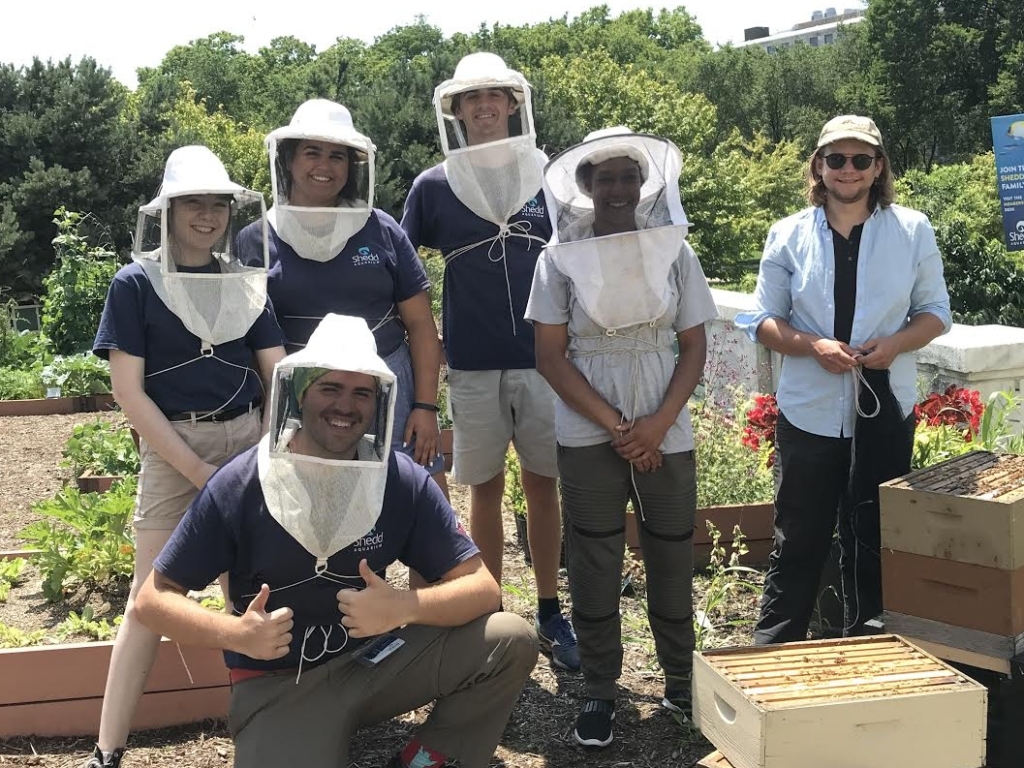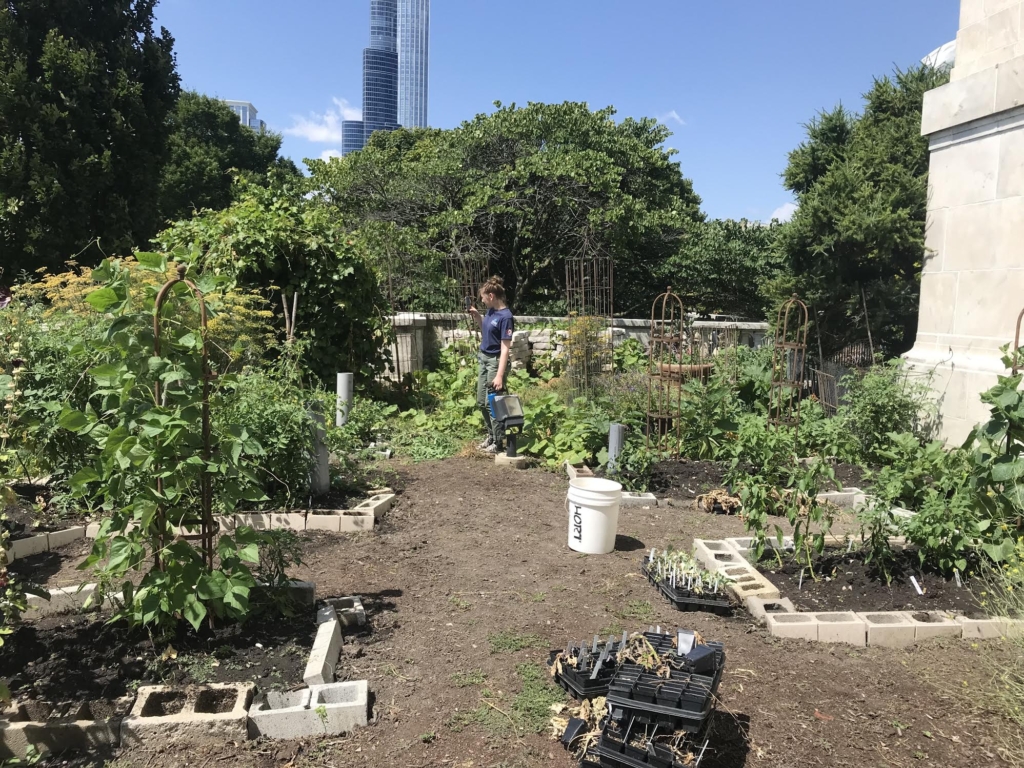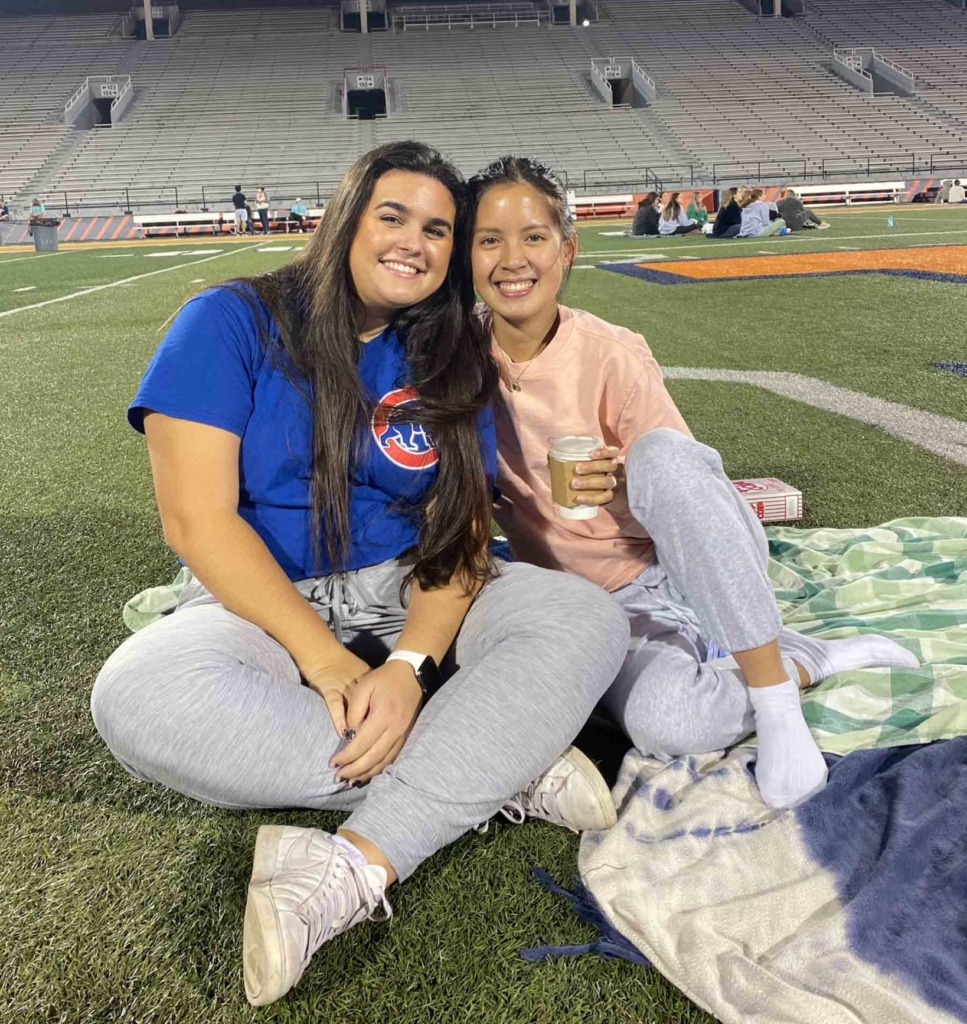Xanthe is a Greek-American University of Illinois tour guide who’s passionate about environmental sustainability. Upon graduating this spring, she’s hoping to create better opportunities for others to gain access to sustainable food sources. We sat down with Xanthe to learn more about her passion and how she’s managing life during the pandemic.
Why did you choose UIUC?
“I like getting asked this question when we’re doing tour guide stuff, because I think a lot of people expect a tour guide to say, ‘I walked on the campus my junior year of high school and it was love at first sight; it was magical.’ And it definitely wasn’t like that for me.
“I was down to the wire between a couple good schools, including Illinois, and I didn’t commit ’til maybe two days before the May 1 deadline. I remember this very distinctly from high school because I felt like every school had their pros and cons.”
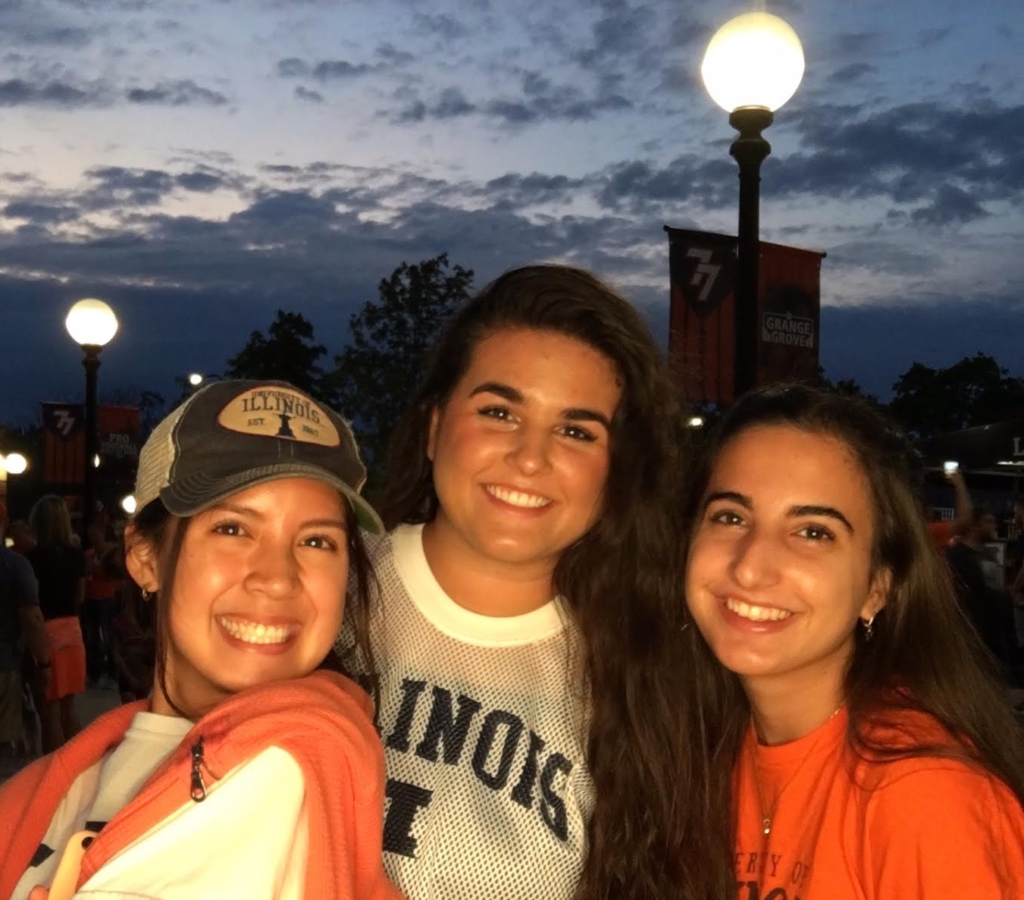
Before coming to UIUC, you weren’t sure what you wanted to do. How did you find your passion?
“My freshman year, in my old major, sustainability was one of the focuses, so we did an intro to sustainability week in this class. It was just this magical moment. It was the most amazing thing I’d ever heard of.
“I didn’t know anything about career paths going forward, though, so I was a little scared to act on it. … I gave myself my whole freshman year to figure it out. … I think it was a mix of figuring out what I cared about deep down, but then feeling strong enough to actually make the big changes.”
What about environmental sustainability interests you?
“My personal passion definitely lies in food sustainability, which means I’ve studied a lot about sustainable agriculture and sustainable food manufacturing. Basically, I study food from when it grows in the field to when it ends up on the grocery shelf: How do we make those processes more efficient, more sustainable, more environmentally friendly, all while accommodating insane exponential population growth (which is a whole other challenge)? So, it’s like, how do you grow more food than you’re growing now, but that also reduce your impact at the same time? That’s what I want to do in my career.
“I’d really like to work for a sustainable food company, which could be a sustainable agriculture company or one of the many vegan food companies that have popped up. I am really interested in that sector. It’s kind of specific, but I think that’s what I wanted all along—to find the specific thing that I care about.”
And you’re interested in solving issues of inequity. Can you talk about that, too?
“Something that I didn’t realize and now understand very well is that being sustainable is very much a privilege. Like, I am vegetarian, mostly vegan. And that’s a privilege, that I can walk into my local grocery store and have a supermarket full of fruits and vegetables and healthy, decently affordable food options. I get to live in my little bubble, where I’m like, ‘I’m doing this, everyone should do this, this is the right thing to do.’
“I’ve chosen to study a lot of neighborhoods in Chicago. They’re called food deserts, which basically means that they have better access to a corner store, like a gas station store, than a supermarket. They could be a 40-minute to an hour bus ride away from a supermarket with fresh food options and healthy food. I don’t expect those people to be going vegan, because they just can’t; it’s not logistically possible.
“So there are two big angles to it: How do we improve the food that I’m seeing in the supermarkets that I go to, and then how do we bring that food to neighborhoods in the U.S., in Chicago, and around the world that are extremely poor when it comes to food options? … Bridging those gaps that even exist in my neighborhood versus the Chicago neighborhood that’s 20 minutes away from me, it’s night and day. That’s the part that keeps me up at night. That’s the thing that I’m thinking about all the time. And how can I, one person, change this? I’m still figuring that out.”
How do you think your time at college has changed you?
“Throughout my freshman year, I became a more diverse person. By diverse, I mean in my own knowledge and in conversations that I’ve had with people and how I viewed the world. Coming here and experiencing all these different cultures and meeting all these different people from all these different neighborhoods, cities, states, and countries just really opened my eyes.
“And I think that moving away from home was the best thing I could have done for myself. I love my family, I love being at home, but I gained a sense of self, and I think that’s what a lot of students gain when they come to college. … Coming into those new environments really led me to figure out who I am, what I like, what makes me happy, what makes me upset, how to be independent, how to live on my own, and how to cohabitate with other people. And I think those are all really important things to figure out at this age.”
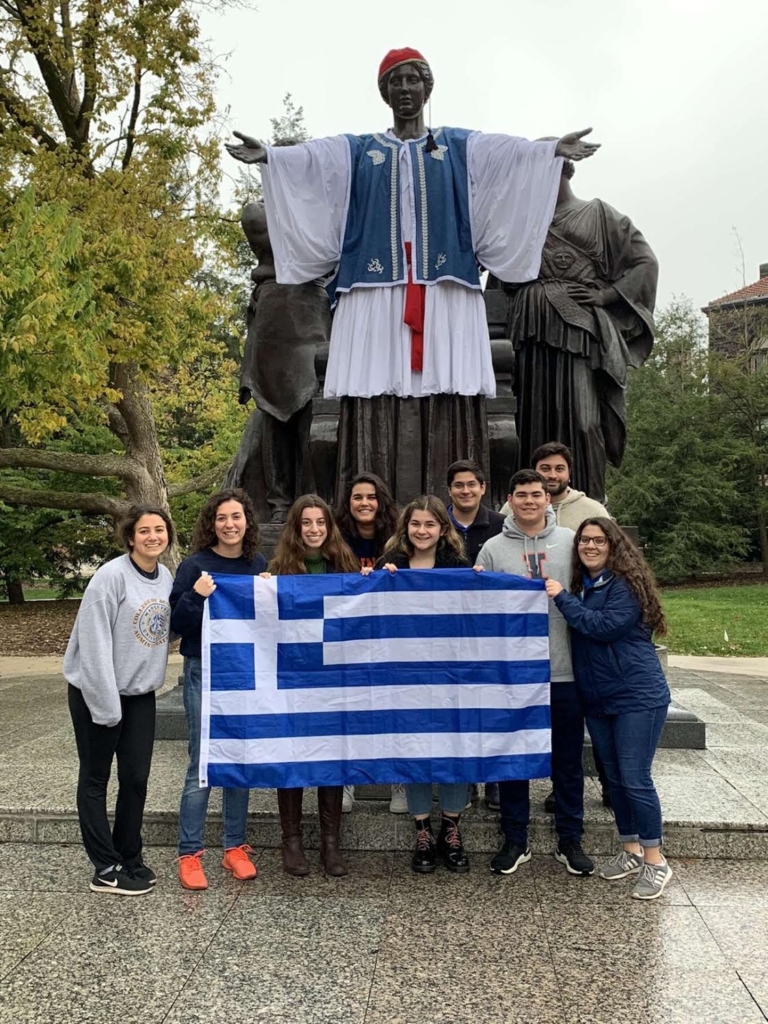
Xanthe and friends celebrate Oxi Day with Alma, who dressed up for the occasion by wearing a traditional Balkan garment called a fustanella. Oxi Day commemorates the day the Greeks said “No” to Italian invasion and occupation during World War II. 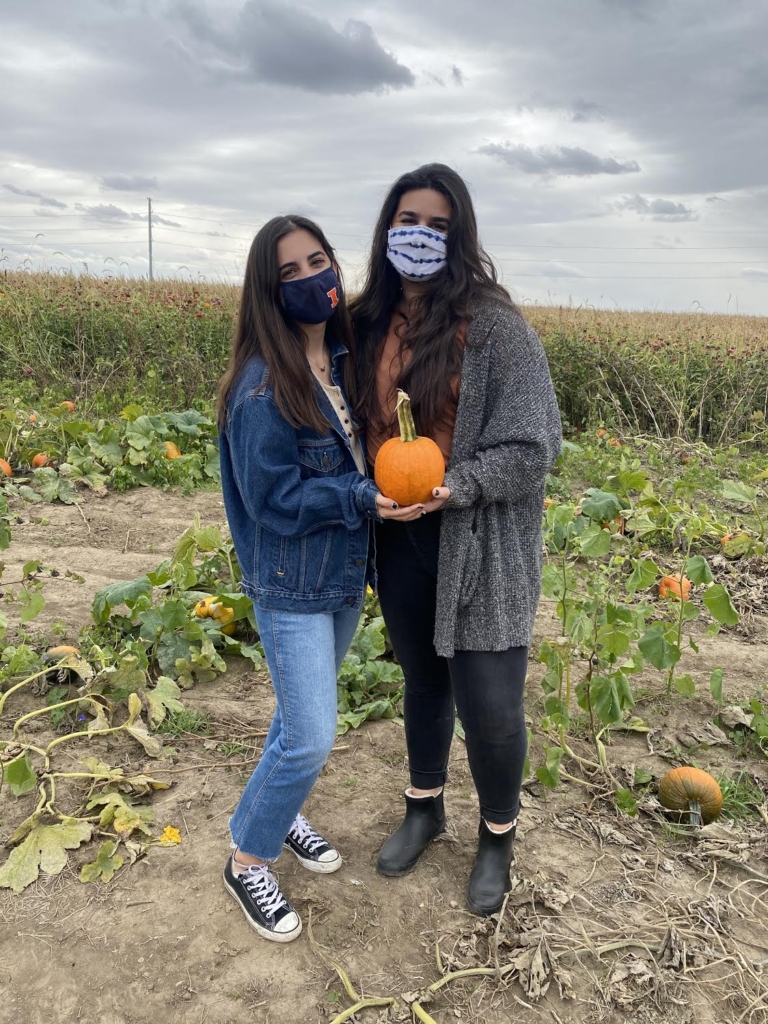
Xanthe’s senior year hasn’t been what she expected, but she’s exercised both gratitude and resilience. “It was bittersweet,” she says of her return to campus in fall 2020. “Good to be back, but weird to see campus in COVID times .”
How did it feel coming back to campus in the middle of a pandemic your senior year?
“It was a little bit shocking, because I’ve experienced the last three years, my freshman through junior year, kind of the same in a good way. There were always people around every hour of the day; there were always gatherings happening on campus. So many sports all the time, so many alumni on campus, Mom’s Weekend, Dad’s Weekend. All of these things that I thought were just given. It was college, it was the experience. But like anything in life, when things change, when they get difficult, you just you adjust and you make the most of it.”
What’s one thing you’ve learned since COVID-19 began?
“I’ve learned that nothing is a given. And to appreciate life as much as I possibly can—to soak everything up in life.”
How has the experience helped you appreciate the little things?
“I’ve never appreciated taking a walk as much as I do this year. Every day, my roommates and I try to take a walk around campus, whether that be walking to a coffee shop or walking just to walk.”
“It’s made me really appreciate the warm weather and the beauty of going to the Quad, being able to just sit there for a little while and see other people there. It’s honestly a luxury, because I’m not seeing that many people in-person in my daily life. …
“There are things that you notice now that I definitely didn’t notice before. The last couple years, I’ve needed to be alone; I saw too many people all the time. But now, the ability to just go out and see people doing their thing is really beautiful.”
Have you learned anything about yourself during this time?
“I’ve learned how to cope. And I think I’ve learned that I’m better at coping than I realized. I deal with mental health struggles, so I try to keep my daily life very stable and very normal. But we were just thrown into this, everyone was, and we didn’t have a choice. You couldn’t avoid it. … But I think when I was put in the moment, I realized that I’m so strong and better at bouncing back and better at adapting than I realized. And I think that’s something that I appreciate about myself now.”
What advice do you have for students entering college next year?
“Don’t be intimidated. Honestly, don’t be intimidated by college juniors and seniors, because all of this was as new to us as it is to freshmen. … I truly want prospective students to know that I do not have it all figured out; my roommates and I do not have it all figured out. We’re all genuinely figuring this out as we go.”
